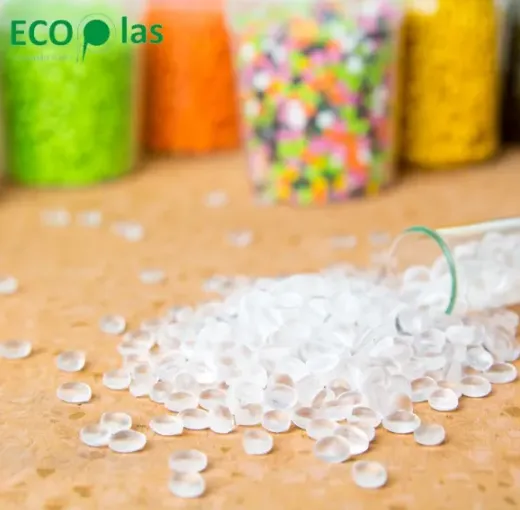Introduction to PCR of post-consumer recycled plastic materials
Jun. 17, 2025
1. What is PCR?
With the continuous promotion of the dual carbon goals of carbon peak and carbon neutrality, more and more people are familiar with and pay attention to the "PCR" of recycled plastics. The PCR here has nothing to do with nucleic acid testing, but is the abbreviation of Post-Consumer Recycled, which generally refers to recycled plastics after use.
Post-consumer recycled plastic materials (PCR) come from components, packaging and other materials of terminal products. These materials have completed their value in the product circulation chain, but cannot return to the initial end of the product chain. Therefore, they are turned into valuable industrial production raw materials through physical or chemical recycling to complete the recycling of post-consumer plastics.
2. PCR and PIR
The corresponding PIR refers to industrial recycled materials, which is what we often call industrial plastic recycling. Generally refers to nozzles, sub-brands, defective products, etc. It is generated during the injection molding process of factory products and is directly recycled and reused from the factory.

The volume of PCR is much higher than that of PIR. If the plastic waste that has completed its consumer mission is not recycled, it will bring huge pollution every year. Therefore, "post-consumer recycled plastic" has higher environmental significance and market value. The "recycled plastic used in proportion" advocated by consumer brands is "post-consumer recycled plastic". "Post-consumer recycled plastic (PCR)" is the recycled plastic that the plastic value chain really needs to circulate in order to achieve sustainable development goals. How to regulate the PCR market and prevent bad money from driving out good money is an urgent problem to be solved.
3. PCR traceability certification system
The PCR traceability certification system is a plastic recycling enterprise that proves to the downstream that the recycled plastic particles/bottle pieces/fiber products it produces have full-chain traceability information from waste plastic raw material identification, procurement, transportation to factory regeneration production. It is an environmentally friendly material that truly recycles and reuses post-consumer plastics and reduces plastic pollution.
The recycling of plastics is an important measure to promote the transformation of the plastics industry to a circular economy. It keeps the value of plastic products and materials in the economic system and prevents plastics from becoming garbage or pollution. In addition, promoting the resource utilization of waste plastics has a synergistic effect of reducing waste plastic pollution and reducing carbon emissions. At the same time, the use of recycled plastics for food contact materials at the top of the industrial chain is also a future development trend. However, due to the immaturity of my country's technology and the imperfect recycling system, it faces many challenges in terms of laws, regulations and industry supervision. With the globalization of technology and the improvement of human environmental awareness, recycled plastics will be guided by national policies, driven by consumers and supported by production enterprises to achieve infinite circulation at the same level.
20
0
0


Comments
All Comments (0)